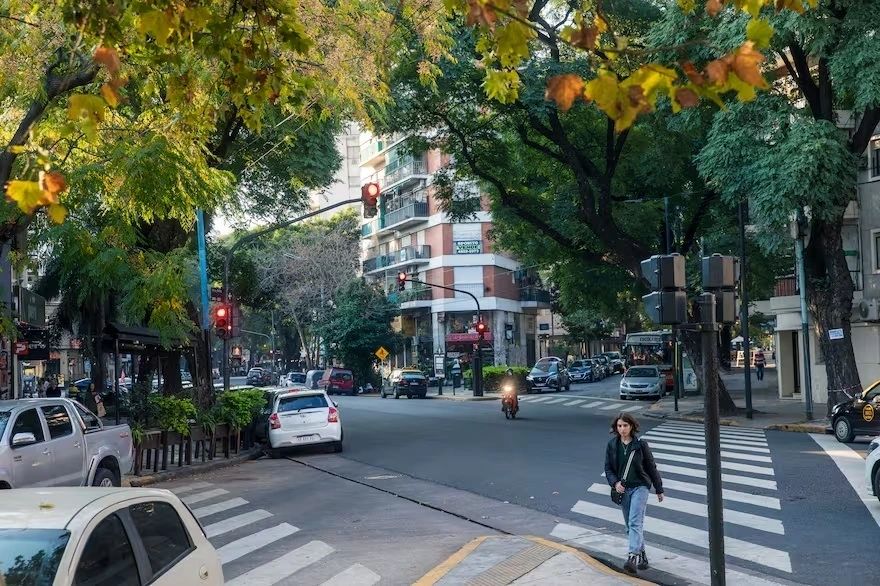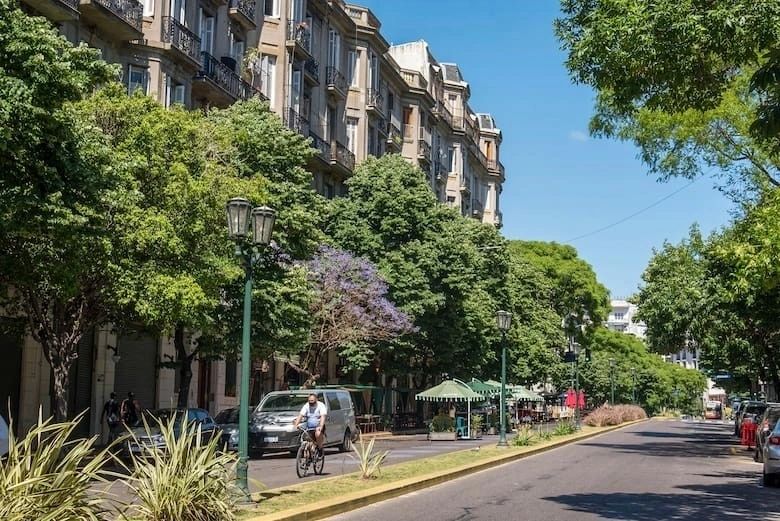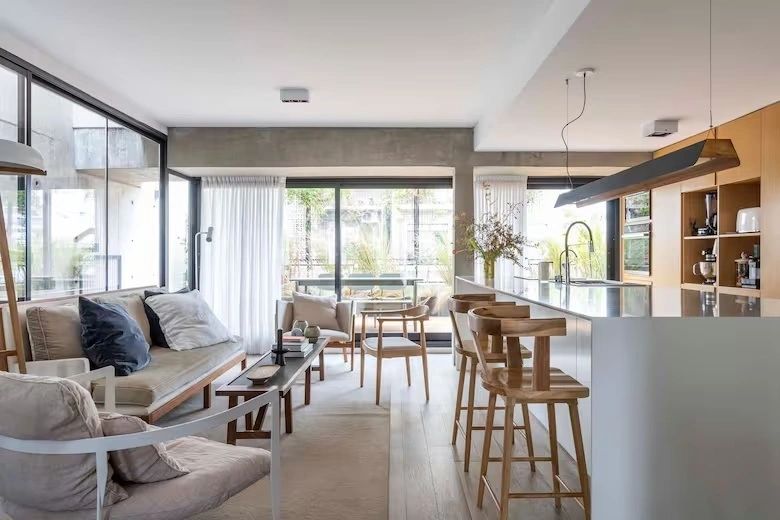BuySellBA
Administrator
The data that reveals why sellers and buyers no longer negotiate the price of a property - La Nacion Propiedades

Source:
El dato que revela por qué los vendedores y compradores ya no negocian el precio de una propiedad
El índice de contraoferta publicado sobre el mes de julio asegura que los valores de las propiedades no bajarán y el margen de negociación es cada vez más estrecho
September 2, 2024
The counteroffer index published for the month of July ensures that property values will not fall and the margin for negotiation is increasingly narrow.
By Maria Josefina Lanzi

A recently published index shows that property values are still rising and will not fall any further
Closing prices for property sales showed that the counteroffer range was 5% in July, which marked the lowest percentage since the closing price index (2020) was compiled every month by Universidad del CEMA and RE/MAX Argentina, together with Reporte Inmobiliario. This represents five consecutive months in which this figure is below 6%.
This number is particularly relevant , since, in the real estate market, the reduction in the negotiation percentages anticipates a bullish cycle in the different price segments . “We are now seeing an increase in values, especially in the smaller sales tickets and, as the real estate market recovers, there will be a more general rise,” says Fabián Achával, director of the real estate company of the same name. He also explains that “ it is likely that this percentage will be reduced below 5% and that the increase in prices will accelerate, as the effect of mortgage credit and money laundering has a positive impact, generating a greater volume in operations.”

PRO - Streets with Boulevard, Av. 20-11-2020.
The counteroffer range refers to the difference between the listing prices of the properties (the values shown on the real estate portals where properties are offered) and what the buyers end up paying, after the price negotiation takes place. In this sense, the closing price index has information on the specific values at which transactions are agreed in the real estate market. These numbers allow us to have a reference for the average real value per square meter and to establish the range of difference in relation to the published average.
Achával explains that, in terms of negotiation percentages, we are converging on the historical one, which was always around 5%: “ These are periods of high demand, such as during the time of Macri's mortgage loans, when this index was below 5%. At the worst moment of the pandemic, the percentage was between 15% and 20%.” Achával clarifies that it is important to keep in mind that the negotiation margin speaks of an average, it does not imply that it is homogeneous in all price segments. “It is likely that in larger properties, for example, US$500,000, the counteroffer margin is higher,” Achával clarifies.
“Since last March, the general sales price has been consistently above US$1,800/m², after 20 consecutive months where it was below that value,” highlights Germán Gómez Picasso, founder of Reporte Inmobiliario. The report details that in July a closing price of US$2,008/m² was recorded for the sale of studio apartments. Regarding two- and three-room units, this figure was US$1,825/m² and US$1,831/m² respectively.
The real m² index for the month of July 2024 fell by 0.8% compared to the previous month. However, if the comparison is made year-on-year, in relation to the price per m² for the same month last year, the sales value of used apartments in the group of one to three-room units in the city of Buenos Aires appreciated by 9.4%. “ The index had been falling, six and seven months ago it stabilized and began to rise. Sometimes there are monthly variations, but the trend is upward ,” explains Gómez Picasso.

In July, the closing price for studio apartments was US$2008/m². For two- and three-room units, the figure was US$1825/m² and US$1831/m², respectively.
Tailwind for real estate
The real estate market continues to rise and the numbers of sales transactions are witnesses of this tailwind. This was shown by the data on deeds for July in the Autonomous City of Buenos Aires, which totaled 4,946 transactions, which implies an increase of 47.3% compared to the same month a year earlier. If the comparison is made with June 2024, the numbers show a 16.9% growth, when the total number of transactions was 4,232. The figures speak of green shoots for real estate experts and of the best month in more than six years.For its part, mortgage credit has reached Argentines again after five years of almost no supply of this type of loan in the country. Thus, in 60 days, 21 banks have launched to offer these lines of credit. This implies new tools so that demand can access the long-awaited dream of “owning a home” , since, in the words of Federico González Rouco, an economist from the Empiria team, Hernán Lacunza’s consultancy firm: “ The only way to access scalable property , in the sense that it can be accessible to everyone, easy and solve a problem, is mortgage credit.”
Recently, the procedure for adhering to money laundering , contemplated in Law 27,743, was also regulated, which, in a nutshell, means that people who have money under their mattress will be able to launder that capital and buy different assets, including real estate. The regulation allows for regularizing up to US$100,000 without taxes, but higher than that amount, progressive rates apply, unless it is used for one of the investments authorized by the Ministry of Economy, such as, for example, investments in real estate projects. In that case , they can launder amounts without a limit and without penalty or taxes. “We think it is a good measure to promote development and investment in real estate projects. Construction is what generates work, investment, activity and deserves this privileged treatment,” says Damián Tabakman, president of the Chamber of Urban Developers (CEDU).
Other figures also show the interest in bricks and mortar : the supply of properties has fallen sharply in recent months. In the figures of the latest Radar Inmobiliario, prepared by Fabián Achával: “In July, Zonaprop recorded a reduction in available stock of 22.7% year-on-year, Argenprop a drop of 21%”.
www.buysellba.com

